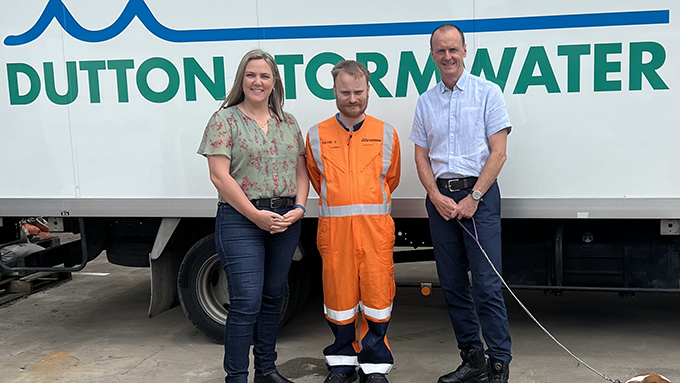Project Employ Employment Programme Lead Emily Norton looks at the barriers organisations must address to harness the skills of neurodivergent talent.
Across Aotearoa, more organisations are recognising the benefits of a neurodiverse team, from problem solving and creativity to increased staff loyalty and broader customer representation. Yet, while the intent is there, many organisations struggle to know how to attract neurodivergent talent and create environments where these employees can thrive.
At Project Employ, we work with young neurodivergent adults every day, and we see first-hand what helps them succeed and what gets in the way. The question isn’t just whether you want to hire neurodivergent talent, but how to provide the conditions in which the full potential of your team is unlocked.
Common barriers employers face
- Traditional recruitment processes – text-heavy online forms and fast-paced interviews can unintentionally screen out cognitive diversity.
- Assumptions about difficulty – employers may fear inclusion means major adjustments or extra workload.
- Managers underprepared for diversity – without guidance, training, or resources, managers may struggle to support neurodivergent team members effectively.
- Lack of awareness – misunderstanding what neurodivergence looks like in the workplace and the strengths these employees bring.
- Training at scale – delivering learning for large numbers of employees that includes different learning styles and cognitive differences.
When these barriers aren’t addressed, both organisations and candidates miss out.
What successful workplaces do differently
The most successful organisations:
- Embed inclusion for neurodivergent employees from the top down – leaders set clear targets, back them with resources, and hold the organisation accountable.
- Treat inclusion as a growth opportunity – managers receive training to strengthen communication and leadership, passing this learning to teams so everyone values neurodiversity.
- Recognise the ripple effect – adjustments like clearer processes or visual guides improve work for everyone.
- Focus on individuals – it’s important to understand each employee’s strengths and needs rather than assuming a one-size-fits-all approach.
- Celebrate difference by joining networks such as Hidden Disabilities Sunflower and NZDEN, and encouraging staff to embrace what makes them unique.
- Offer flexibility beyond hours – adapt work patterns, locations, and environments to individual needs. This can include part-time or staggered hours, quieter or less stimulating workspaces, breaking tasks into manageable steps, extra breaks, and alternative ways to receive instructions or contribute.
What this looks like in action
David moved straight from Project Employ’s training café, Flourish Café in Takapuna, into a yardman role at Dutton Stormwater and Drainage. The leadership team intentionally sought an employee with a cognitive difference for this role, which required comfort with repetition. Visual charts and a supportive, open-minded team helped him settle in quickly. His diligence and friendly nature made him indispensable. Dutton General Manager Tracey Hill says, “Having David on our team is a delight… he brings out a gentleness and kindness in all who are around him, which is lovely to experience.”

Olivia discovered through an internship at Fonterra that her ideal role combined computer work with customer interaction. On a Project Employ tour of Sudima Hotels, she connected instantly with the environment. Sudima interviewed her alongside her Project Employ support person, framing it as a casual chat rather than a formal interview. By removing pressure, Olivia was able to shine. She is now thriving as a Hotel Service Attendant in Auckland, described by her manager as an “absolute star.” She also contributes to the hotel’s sustainability group, bringing her perspective to support staff and guests.

Kimiyo began with Project Employ, unsure of her future and lacking belief in herself. Six months at Flourish Café built her confidence, and an internship at Project Employ’s Air New Zealand café turned her into a skilled barista. She is now a Food & Beverage Service Expert at JW Marriott. Her supervisor says, “She has proven to be a true all-rounder… we are grateful to have her onboard.” Kimiyo’s journey reflects how structured training and supportive workplaces can create lasting careers and meaningful change.

Reflection questions for employers
These stories show what’s possible when inclusion is intentional, but they also raise questions:
- Are your recruitment processes accessible to neurodivergent candidates? (Hint: if you rely only on standard online application platforms, they probably aren’t.)
- Do your managers have the tools to communicate and support effectively?
- Does your workplace culture encourage belonging and celebrate difference?
If the answer is “not yet,” what small steps could you take today to build readiness?
Take the step: Hire differently, gain exceptional talent
Neurodivergent people make up an estimated 15 to 20 per cent of the population. Tapping into this talent pool isn’t just the right thing to do; it strengthens your teams with loyal, motivated employees who bring fresh perspectives.
At Project Employ, we partner with organisations on this journey. By opening the door to a graduate, you’re not just changing one person’s life; you’re building a workplace where inclusion benefits everyone.
If you’re curious about how hiring or offering internships to Project Employ graduates could work in your organisation, contact Emily Norton at emily@projectemploy.nz or find more information at Project Employ Employment Programme.



